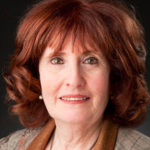Fertility Preservation and Parenthood
February 16, 2013
By: Lynn Manwar
I was born and raised in Toronto, Canada, and have faced many health challenges in my lifetime. I overcame thyroid cancer at the young age of 24, and have lived with arthritis since 2003. About a year ago on December 20th, 2011, I received news that I had breast cancer.
I was surprised at having to deal with another type of cancer, but I did not allow the news to stop me from living, and a week later I went for a holiday with my family. Upon arriving home, my treatment regime, which included chemotherapy, surgery, and radiation, was set to begin. I was very fortunate that I spoke to two breast cancer survivors in my circle of contacts, who informed me that chemotherapy may put a woman into menopause and compromise her fertility.
Having a family has always been one of my lifelong dreams, and I was certainly not going to let cancer crush the possibility of having children in the future. I was prepared to do whatever it took – even risk my own health to keep the dream of motherhood alive. I had daily injections of fertility drugs over a two week period before my egg retrieval procedure. My breast cancer was estrogen positive and my oncologist warned me that undergoing fertility treatment could cause the tumour to grow bigger.
At 9 a.m. on January 12th, 2012, I went with my mother to the Centre for Fertility and Reproductive Health at Mount Sinai Hospital, and decided to pursue IVF and egg harvesting. The freezing of eggs is experimental, so I decided to harvest eggs, along with embryos. I initially kept my IVF procedure private among my immediate family members, and a couple of months later, I felt comfortable to share it with my extended family and friends. Everyone was supportive when I shared my story of fertility preservation.
The IVF procedure is quite expensive, and is an unexpected added cost for a newly diagnosed cancer patient. So, I had applied for The Power of Hope Program through Fertile Future that offers financial assistance for qualifying cancer patients under the age of 40. My application was approved quickly, and I received a cheque from Fertile Future to assist with the costs incurred for fertility preservation.
Based on my experience, I feel that the oncologists and other medical professionals treating cancer do not spend enough time educating young newly diagnosed cancer patients about their fertility options. I was simply given a binder that included a pamphlet from Fertile Future which I did not initially read. I was too overwhelmed at the beginning of my cancer journey to spend time reviewing pamphlets. It was only after talking to other cancer survivors that I took the time to investigate my options for fertility preservation.
It is my hope that by sharing my personal story about fertility preservation, other young adults will be inspired to keep their options of parenthood open before cancer treatment begins. A future family is a great motivator to propel a cancer fighter forward!



